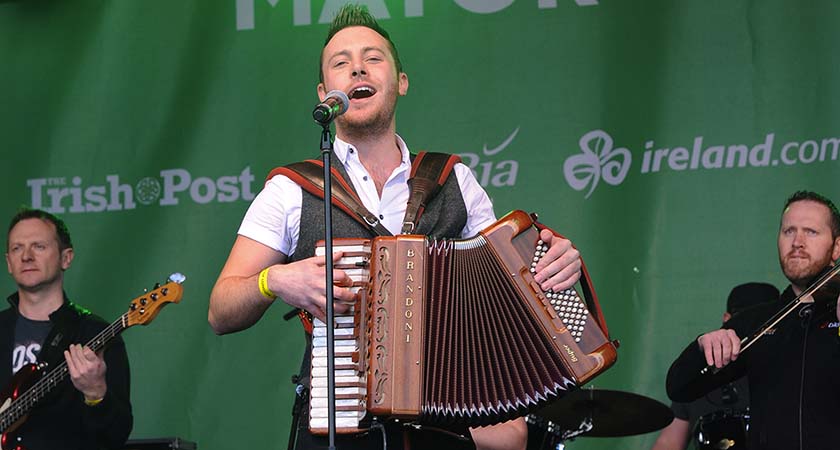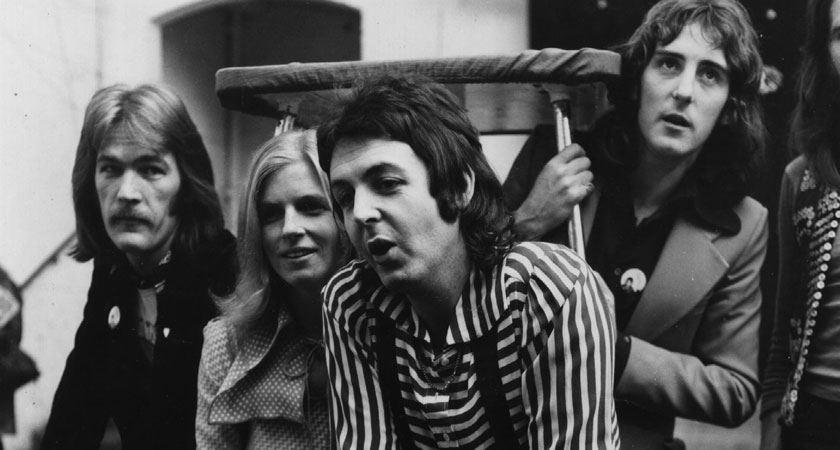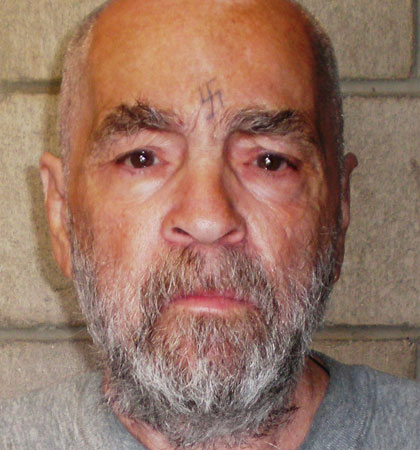NATHAN CARTER made headlines in 2016 when a fan’s repeated playing of his hit Wagon Wheel was described as “psychological torture” for one of his neighbours.
Stephen John Leighton was given a suspended four-month prison term after smashing neighbour Jason Kane’s windows and telling him: “If I hear Wagon Wheel one more time I’m going to break that stereo.”
However the Ireland-based star is not the first artist whose music has driven people to extremes…
B*Witched
In 2014, environmental health officers paid four visits to teenager Rebecca Hope’s house in Ipswich following various complaints about her playing loud music, including James Blunt’s You’re Beautiful.
However the last straw for her suffering neighbours came when she played denim-clad Irish girl group B*Witched’s 1998 No.1 hit C’est La Vie at full volume.
Ms Hope was found guilty at South East Suffolk Magistrates Court of four offences of breaching a noise abatement notice and lumbered with £900 in fines and costs.
After the verdict, she said: “I don’t know anything about B*Witched and I haven’t even got any of their music.” To be fair we would never admit to owning their records either.
The Pogues and Paul McCartney
Despite the fact that Fairytale of New York had been around for two decades with nary an eyebrow raised, in 2007 the BBC suddenly decided to air an edited version so as not to offend listeners.
The words “faggot” and “slut” were edited out for Radio 1 airplay, with the Beeb saying “some members of the audience might find it offensive”, adding they would not be going back on their decision.
A few hours later the BBC went back on their decision, with the attention the short ban generated arguably boosting sales — the festive favourite peaked at No.4 in the British charts that year, its third highest charting ever.
Third-generation Irishman Paul McCartney also fell victim to outraged censors in 1972. His song Give Ireland Back to the Irish, recorded with his band Wings, was banned in Britain by the BBC, Radio Luxembourg and the Independent Television Authority.
Again the ban arguably helped promote an otherwise mediocre song, which reached a respectable No.16 in the British charts.
It wasn’t popular with everyone however, with McCartney admitting that the brother of Wings guitarist Henry McCullough, who lived in the North of Ireland, got beaten up because of the tune.
The Beatles
McCartney’s fellow Beatles were also of Irish descent and in 1968 the band released an eponymous double album (also known as the White Album).
It has since been credited as one of the best records of all time but had a lukewarm reception upon release. However one fan was quasi-commune leader Charles Manson.
He believed the album contained hidden, coded messages about an apocalyptic race war which he dubbed Helter Skelter, after one of the album’s tracks.
Under his misguided teachings inspired by the album, his so-called ‘family’ killed nine people as part of their plans to instigate said race war.
Being American, he probably didn’t realise that helter skelter was merely the British name of a harmless spiral fairground slide.
Jedward
Tuneless, quiffed, hyperactive Dublin twins John and Edward Grimes (AKA Jedward) first hit our screens in 2009 on X Factor. Loathed by Simon Cowell and anyone not hard of hearing, they weren’t given much of a chance by anyone except their Irish mentor Louis Walsh.
After ending up in the competition’s bottom two in week five of the live shows, Cowell — who described the pair as “vile creatures” and “incredibly annoying” — had the deciding vote. However he chose not to eliminate the duo and allowed the decision to go to the public vote. Having more votes than rival Lucie Jones, Jedward survived.
Cowell’s decision not to eliminate the Lucan teens he openly despised became headline news across Britain. Amid claims of a ratings conspiracy and widespread threats from fans to boycott the show, ITV received 3,000 complaints over Cowell’s decision. (By comparison, Clare Balding’s crude ‘teeth’ remark to Grand National-winning jockey Liam Treadwell that year garnered less than half as many for the BBC.)
In defence of Jedward, they accumulated more votes so the voting viewers really only have themselves to blame here. The insufferable duo lasted two more cringe-worthy weeks.
Westlife
If you thought a few minutes of Jedward once a week for seven weeks was torture, try Westlife’s 2002 single My Love at full volume ad nauseam.
A report last year by the American Civil Liberties Union (ACLU) claimed the track was used by the CIA to torture terror suspect Suleiman Abdullah in Afghanistan. The report said: “His interrogators would intersperse a syrupy song called My Love with heavy metal, played on repeat at ear-splitting volume.”
The ACLU filed a lawsuit on behalf of prisoners, describing the interrogation technique as a “war crime”. Even Westlife’s Kian Egan admitted: “It’s a pretty annoying song, especially to be played over and over again.”
U2
U2, and in particular their frontman Bono, have proved divisive over the years, with their philanthropy appearing at odds with their convoluted tax set-up. But hey, if you don’t like them, you can just avoid their music, right?
Unfortunately the band sparked global outrage when Apple installed their 2014 album, Songs of Innocence, directly onto 500million people’s iTunes libraries without their consent. Yes, it was free, but who did U2 think they were, foisting their music onto unsuspecting music fans?
Rapper Tyler, The Creator, described finding U2 on his iTunes library as like “waking up with a pimple or like a herpes”, while Britain’s Entertainment Retailers Association said the stunt reduced music distribution to “spam”.
Apple, who reportedly paid $100million for the album, was forced to release a one-click tool for users to remove it. The PR disaster saw one website dub U2 “the most hated band in America”.
Bono later apologised for the “gross invasion”, describing the album as a “bottle of milk in people’s fridge that they weren't asking for”. I’ll buy my own milk if it’s all the same with you Bono.
Rebel songs
And to end we’ve come full circle, with more disgruntled neighbours getting in a spin over loud music.
In July 2015, Michael Thornton was jailed for five months after breaking an ASBO requiring him to keep the peace. At late-night parties at his flat in Northfield, Birmingham, Thornton would serenade his neighbours with Irish rebel songs at the top of his voice.
Another favourite was Brian and Michael's 1978 No.1 Matchstalk Men and Matchstalk Cats and Dogs. The song, inspired by artist LS Lowry who is of Irish descent, is more familiar to today’s generation as the tune of Celtic fan song Willie Maley.
One traumatised neighbour claimed: “It would go on and on and on, he would play it over and over and sing along himself.”






